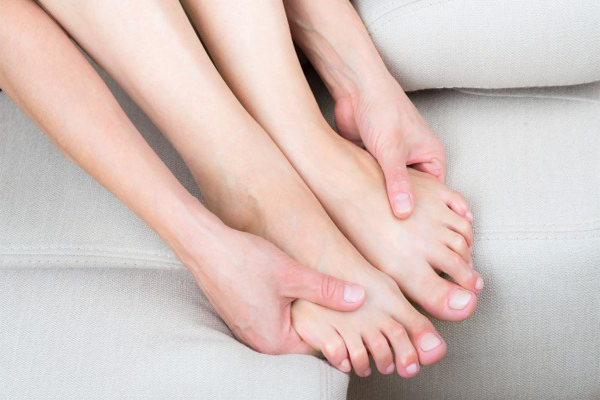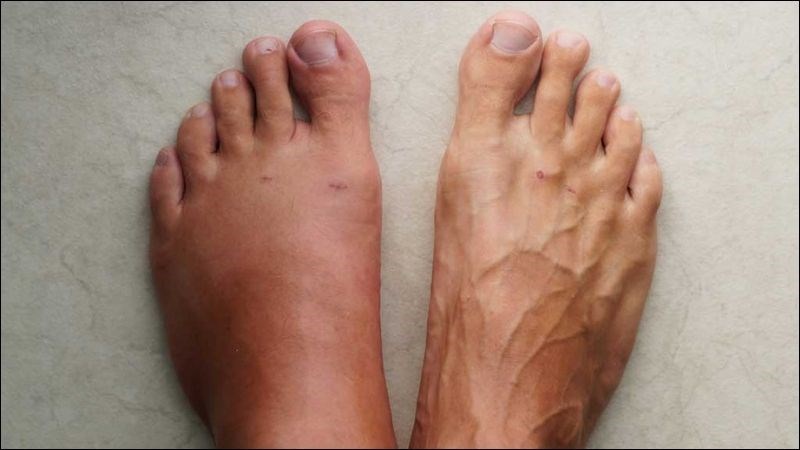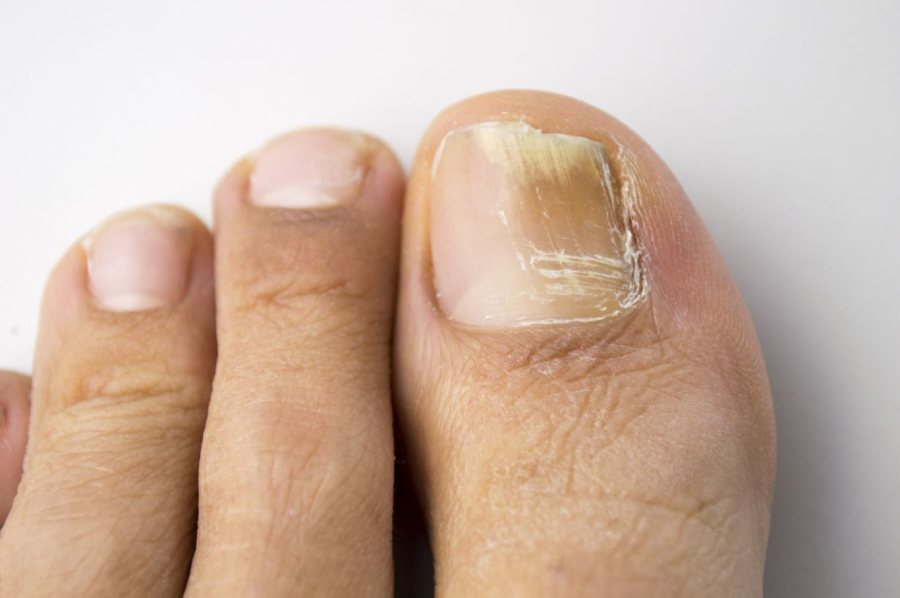Itchy Feet
Itching or flaking skin on the feet could indicate a common fungal infection, according to experts. Itching can also be caused by an allergic reaction to chemicals or skincare products, known as contact dermatitis. If itching is accompanied by lines on the toes, it may be a sign of psoriasis. Topical creams can help alleviate these symptoms.
Claw Toes
Claw toes are often the result of ill-fitting shoes, especially those that are too tight, causing the toes to curl. However, it’s important to note that medical conditions such as nerve damage from diabetes, alcoholism, or neurological disorders can also lead to this issue. In cases where the underlying cause is related to bone or joint problems, surgery or physical therapy may be necessary for effective treatment.

Claw toes are often caused by ill-fitting shoes or bone and joint-related issues.
Cold Feet
Typically, a healthy individual will have warm feet. If you frequently experience cold feet and toes, it could indicate poor blood circulation, with potential causes including smoking, high blood pressure, or cardiovascular disease. Additionally, this issue may be a result of nerve damage, particularly in individuals with uncontrolled diabetes, or it could be linked to hypothyroidism and anemia. Consulting a doctor is essential to accurately diagnose and address the underlying cause of this symptom.
Foot Cramps
If you often experience sharp, shooting pains in your feet, it could be a sign of muscle cramps or charley horses, which can last from seconds to minutes. The most common cause is muscle fatigue due to overexertion. Other contributing factors include poor blood circulation, dehydration, mineral imbalances (such as potassium, magnesium, or calcium deficiencies), and vitamin D deficiency. If you experience frequent or severe cramps, consult your doctor for a proper diagnosis and treatment.
Swollen Feet
Swollen feet can have various causes, one of the most common being prolonged standing. Pregnant women also frequently experience this due to increased pressure on their veins. If neither of these applies, it could indicate more serious issues such as poor circulation, lymphatic system disorders, or blood clots. Additionally, kidney dysfunction or an underactive thyroid gland can lead to foot swelling. If the swelling persists or is accompanied by other symptoms, it’s important to consult a doctor for a timely diagnosis and treatment.

Swollen feet can be caused by various factors, with prolonged standing being a common reason.
Heel Pain
Heel pain is often associated with plantar fasciitis, an inflammation of the plantar fascia, a band of tissue connecting the heel bone to the toes. This typically causes pain when you first wake up and start moving around, especially when putting pressure on the heel. Other contributing factors include over-exertion and ill-fitting shoes. While less common, bone infections, tumors, or fractures can also cause heel pain. If you experience this symptom, it’s advisable to consult a doctor for an accurate diagnosis and effective treatment.
Yellow Toenails
Yellow toenails are usually a sign of a fungal infection, which causes the nails to thicken and turn yellow. Additionally, this discoloration could indicate other health issues such as lymphatic system disorders, lung problems, psoriasis, or rheumatoid arthritis. If you notice unusual yellowing of your toenails, it’s important to consult a doctor to determine the cause and receive timely treatment.
White Toenails
The appearance of white areas on the toenails can signify trauma or health issues affecting various parts of the body. When part or all of a toenail turns white, it could be due to injury, nail infection, or psoriasis. Moreover, it may indicate more severe conditions, such as liver disease, congestive heart failure, or kidney disease. If you notice any abnormalities in your toenails, it’s advisable to consult a doctor for an accurate diagnosis and timely treatment.

White areas on the toenails can indicate various health issues throughout the body.
Achy Foot Joints
Achy foot joints could be a symptom of rheumatoid arthritis, often manifesting as discomfort in the smaller joints, such as those in the toes and fingers. This condition is typically accompanied by swelling, stiffness, and symmetrical pain on both sides of the body. Rheumatoid arthritis is more prevalent in women, with a four times higher incidence rate than in men. If you experience prolonged achy joints, it’s advisable to consult a doctor for a proper diagnosis and treatment.
Sudden Big Toe Swelling
A sudden increase in the size of the big toe can be a sign of Gout, a type of arthritis. This condition is often associated with high levels of uric acid in the blood, which tends to accumulate in the body’s colder areas, with the big toe being the most susceptible due to its distance from the heart. Men aged 40-50 and postmenopausal women are at a higher risk of developing Gout. If you experience this issue, seek medical advice to determine the cause and receive timely treatment.





































